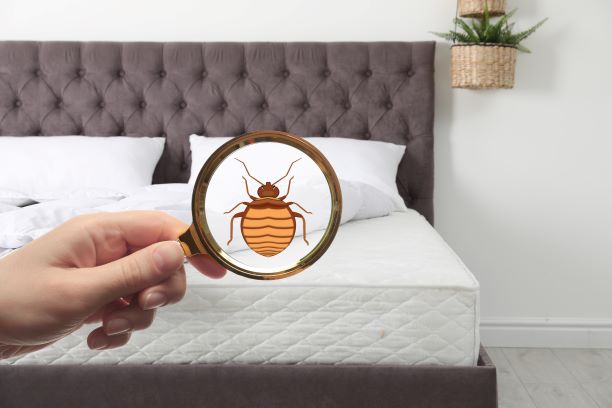The average hotel is infested about once every five years. While the problem may seem reasonably straightforward to deal with, it can cost hotels up to £4,000 to deal with.
This considers hiring in experts in treating bed bugs, as well as replacement furniture or linen. Expenses can be even higher if the hotel is sued or business lost.
Bed bugs are a global problem and can be found in hotels anywhere around the globe. They’re particularly susceptible, considering the high levels of traffic they receive and the increase in global travel.
It’s easy to assume that only unhygienic or low-quality hotels suffer. The truth is, they can occur anywhere, regardless of cleanliness, and even top five star hotels are known to suffer from infestations.
While bed bugs aren’t dangerous and don’t spread disease, they cause some people to suffer an allergic reaction that may require a doctor’s visit.
How to Make Sure your Hotel Room isn’t Infested
If you suspect your hotel room is infested with bed bugs, you’ll need to inspect all parts of the room thoroughly. Although they commonly hide in bed frames and mattresses, they can live in virtually any crevice imaginable.
There are several things to look for as you examine the room. Blood spots or small blood smears are a common sign. It would help if you also looked for single or batches of eggs around 1 mm long, which are milky white in appearance. Or a sweet and sickly scent, which indicates a large infestation.
Now you know what to look for, where in the room do you need to check? The bed frame and mattress are excellent places to start and edging and seams around mattresses and box springs. You should also check the gap between the headboard and the wall.
Next, check all furniture near your bed, such as nightstands, behind picture frames and bedside cabinets. Remove all draws and inspect them, particularly around their joints and seals.
Don’t forget to check all upholstery, such as around zips, seams and the inside covers of seating. You should also check the area where skirting boards, carpets and furniture meet the walls. Also, pay close attention to your luggage rack and small ornaments in the room.
Actions to Take if You do Discover Bed Bugs
Firstly, pack up your suitcase and move it as far as possible from the infestation. Usually, this is the bathroom. Then, you’ll need to let the hotel staff know so that they can move you to another room and make sure the bed bugs haven’t spread to other rooms or areas.
Place all your used clothes inside a zippable plastic bag, quickly running them through a hot laundry cycle. Alternatively, if this isn’t possible, place the bag in a freezer overnight to kill off the bugs. For items that cannot be washed or frozen, you’ll need to contact a pest management professional to eliminate the problem.
It would be best if you also vacuumed out your suitcase, disposing of the vacuum’s contents in a sealed bag within an outdoor bin. Finally, wipe your shoes with a damp cloth and hot water, in case bed bugs have collected there.
Why is all this necessary? It eliminates the infestation before you get home so that you’re not bringing bed bugs into your own home.











